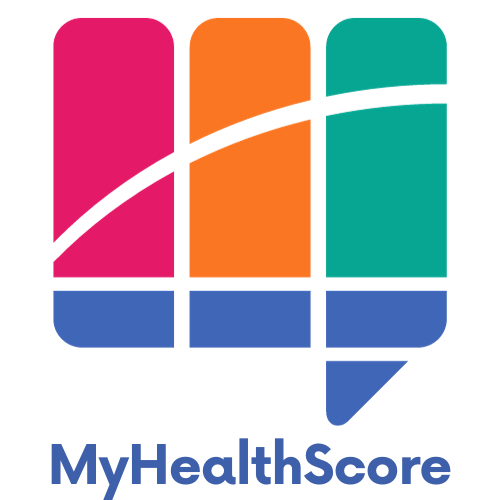Protect one of the most valuable things you own - your health.
Simple Daily Steps to Improve Your Health
Have you taken the My Health Score quiz? Congratulations! You’re on your way to a healthier you.
After taking the quiz, you will receive some information about products and services that can help you to improve your health score.
This article is a great addition to these, providing you with simple daily activities to support your health and wellbeing.
If you haven’t taken the quiz you can complete it here. This will give you a helpful baseline score to track your progress.
Use these steps regularly and look after one of the most valuable things you own...your health.
Drink enough water
Benefit:
Between 50 to 80% of the human body is made up of water, and we rely on it for digestion, nutrient absorption, movement, getting rid of waste and regulating body temperature.
Water intake needs will vary depending on your body, the season and a range of other factors.
Urine colour can be a helpful measure of hydration - if your urine is dark yellow it’s likely you need more water. If it’s light in colour and clear you’re likely to be well hydrated.
Action:
Aim for around 8 glasses of water per day.
2. Eat healthy and avoid skipping meals
Benefit:
Healthy eating benefits almost every aspect of our health.
A diet high in fresh, unprocessed foods gives your body access to a wide range of essential vitamins and minerals and protects against certain diseases such as diabetes, heart disease, cancer and mental illness.
Where you can, try to listen to your hunger cues. Skipping meals can lead to overeating due to hunger.
Action:
Eat plenty of vegetables, fruit and wholegrains (such as brown rice, or wholemeal bread)
Include protein-rich foods like meat, eggs, seafood, and legumes
Pick unflavoured milk and yoghurt (no added sugar)
Include healthy fats and oils like avocados, olive oil, and nuts and seeds
Use herbs and spices to flavour meals instead of salt.
Keep some healthy snacks on hand, especially those that provide protein such as nuts (unless allergic), meat, protein bars, etc.
Prepare your meals ahead of time and keep them refrigerated or frozen so you have something healthy on hand.
3. Get your steps in
Benefit:
Physical activity supports a healthy body and mind.
Exercise helps to maintain healthy weight, blood pressure and cholesterol levels, as well as boosting endorphins and other ‘happy’ chemicals in the body for a healthy mood.
Being physically active for 30 minutes a day can reduce your risks of heart disease, stroke and other illnesses.
Action:
Boost steps by:
Taking the stairs instead of the lift
Parking a little further from the office
Going for a lunchtime walk instead of sitting at your desk
4. Go to bed a little earlier
Benefit:
Getting enough sleep is essential for several key brain functions including: concentration, productivity and memory.
Sleep supports healing, immune function, mood and healthy blood pressure.
7-9 hours sleep per night is the recommended healthy goal for most adults.
Action:
Try going to bed 10 minutes earlier than usual for a week and see how you feel.
5. Take regular stretch breaks
Benefit:
If you work from a desk, chances are a lot of your day is spent seated in a particular posture around your computer.
Taking regular breaks to stand up, to stretch and to move around can reduce fatigue, improve posture, improve blood flow and reduce any physical discomfort that comes with repeated activity.
Action:
Set a reminder on your phone or computer to take a 1-2 minute break every hour.
Stand up. Step away from the desk.
Find a few fun stretches that help you to get your arms, shoulders, wrists, hands and body moving.
6. Reduce intake of alcohol and cigarettes
Benefit:
Alcohol and cigarettes affect the body in many ways that can increase the risks of long-term health problems.
By reducing or ceasing intake of these substances, you can improve your mood, sleep, energy levels, concentration and improve your body’s ability to absorb vital nutrients and to maintain health.
Action:
Be clear on your current intake across a week and try having one less drink a week or one less cigarette a day.
It’s normal to initially feel some frustration or other side effects as your body adjusts.
N.B. If you currently drink or smoke heavily, consult your healthcare practitioner before making any sudden changes.
Keen to get started?
Grab a notebook or your calendar and mark the actions you will take each day for the next week.
If you miss a day, don’t worry. Start again tomorrow.
At the end of the week take 10 minutes to check-in with yourself:
How does your body feel?
Did you notice any changes over the week (feeling more refreshed, more energetic)?
How’s your mood?
Which actions did you find challenging to do (if any)? Is there anyway to make them less challenging?
Which actions did you enjoy doing?
Time to get that notebook or calendar out and mark your next week of daily steps to improve your health.
Check your progress
Come back to the the My Health Score quiz in a month or two and redo it.
Get more helpful articles like this one. Subscribe and receive future articles direct to your inbox (no spam, only quality health information).
Share this article with others who need this information.
Improve your health score today with the health score quiz.
Resources:
Australian Guide to Healthy Eating
Quitline (Australia): 13 78 48. For support with quitting smoking.
National Alcohol and Other Drug Hotline (Australia): 1800 250 015
